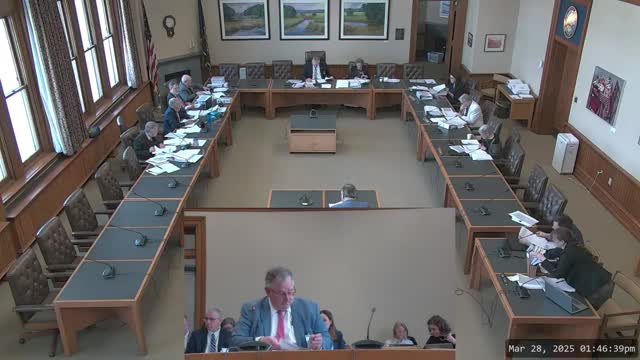Article not found
This article is no longer available. But don't worry—we've gathered other articles that discuss the same topic.

House Finance Division III advances budget changes, delays and targeted cuts; MCO payment timing and Medicaid rates among major moves

Representative McLean’s direct‑pay facilities bill pulled from HB 2 after extensive testimony; committee seeks further Senate policy work

